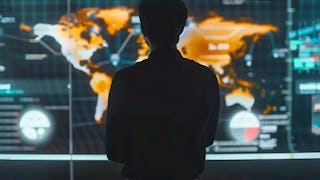Welcome to the Development Economics course! By the end of this course, you will understand the evolution of development economics as a disciplinary stream in the field of economics. The subject rose to prominence in the 1950s as an important field of engagement for economists, policymakers, and development practitioners seeking rapid socio-economic transformation of the backward and newly independent nations, even as a large part of the developed world was caught up with the reconstruction of their broken economies in the post–World War II context. In this course, you will be introduced to the salient features of different development paradigms and how that thinking influenced policymaking in the developing and developed world. Where feasible, the theoretical discussion is approached through contextualized treatment of concepts in view of changes in the developing world and the global economy. You will also be able to learn the concepts intuitively with the help of diagrams without much reliance on statistical or mathematical techniques.



Expérience recommandée
Ce que vous apprendrez
Define development economics and explain how political-economy debates in the real world have influenced development ideas, policies, and practice.
Explain the notion of human well-being, its evolution, and implications for development policy and practice.
Explain the structural context of underdevelopment, poverty, and inequality.
Define the relationship between growth and development and trade and development and the role of globalization in contemporary development.
Compétences que vous acquerrez
- Catégorie : Human Development
- Catégorie : Growth Strategies
- Catégorie : International Relations
- Catégorie : Policty Analysis, Research, and Development
- Catégorie : Socioeconomics
- Catégorie : World History
- Catégorie : Economics
- Catégorie : Demography
- Catégorie : Economic Development
- Catégorie : Social Sciences
Détails à connaître
25 devoirs
Découvrez comment les employés des entreprises prestigieuses maîtrisent des compétences recherchées

Il y a 8 modules dans ce cours
In this module, you will be introduced to the concept of economic development, how the concept has evolved over time, and how it is related to the concept of human well-being. More specifically, you will explore the concepts of GDP as a measure of development, the multifaceted nature of development, Sen’s capability approach, and the concept and measurement of the human development index. You will also understand the relationship between happiness and development and the evolution of ideas in the field of development economics.
Inclus
9 vidéos7 lectures3 devoirs
In this module, you will explore some structural features of less developed countries, which are often found to be very different from the structural features of developed countries. These features include demographic characteristics of the population, occupation and production structure, presence of dual economy, rural to urban migration, lower level of living, productivity, low industrialization, structural transformation, social conflict, international trade patterns, etc. The study of these features helps you understand the differences in the structure of underdeveloped and developed countries.
Inclus
8 vidéos3 lectures2 devoirs1 sujet de discussion
In this module, you will understand how the evolution of development thinking has happened in development economics. Beginning with Rostow’s stages of growth theory, you will also explore Harrod–Domar theory of economic growth. You will further discuss Lewis’s theory of economic development based on the concept of dual economy observed in surplus labor in underdeveloped countries. The other theoretical developments during the 1960s and 1970s, such as international-dependence theories and market-oriented approaches, are also discussed along with policy-oriented approaches, such as import-substitution-industrialization, export-led-industrialization, and Washington consensus.
Inclus
11 vidéos10 lectures5 devoirs1 sujet de discussion
In this module, you will learn about different theories of economic development, such as the role played by history, expectations, complementarity, and multiple equilibria. You will also explore the concept of underdevelopment as coordination failure, the concept of the poverty trap, critical minimum effort, and the Big Push to get out of the problems of coordination failure and the poverty trap. We also discuss the policy-oriented concepts of linkages and balanced and unbalanced growth. Finally, you will learn how to identify the most pressing constraints a country is facing to increase investment and economic growth.
Inclus
9 vidéos4 lectures2 devoirs1 sujet de discussion
In this module, you will learn about different theories of economic growth. This discussion is divided into proximate determinants of economic growth and deep determinants of economic growth. In the proximate determinants, you will be introduced to the difference and similarities between the neoclassical and endogenous growth models, the convergence hypothesis, and the relationship between club convergence and growth policy. Further, you will explore the deep determinants of economic growth. You will also gain an understanding of economic growth in the very long run. Specifically, you will examine Jared Diamond’s thesis on how geographic factors played a significant role in determining the prosperity of nations in the very long run. Later you will understand the relationship between geography and economic development, first through trade and then through disease and agricultural productivity. You will also gain an insight into the comparative role of geography and institutions in determining the prosperity and poverty of nations in the long run.
Inclus
9 vidéos5 lectures3 devoirs1 sujet de discussion
In this module, you will learn about different concepts related to poverty and inequality. You will be introduced to the extent and magnitude of absolute poverty and the economic characteristics of the high-poverty groups. Further, the measurements of income poverty and multidimensional poverty. You will learn about the measurements of inequality. You will also understand the relationship between aggregate economic growth, poverty, and inequality and the policy options to reduce inequality and poverty.
Inclus
10 vidéos8 lectures5 devoirs1 sujet de discussion
In this module, you will be introduced to different theoretical concepts related to international trade and development. This discussion is divided into international trade theory, trade policy, and multilateral approaches to trade policy. The discussion begins with the theory of comparative advantage and the Heckscher–Ohlin model. Also, the trade policy issues, such as gains from trade, import substitution, and export promotion, are discussed. You will also learn about the reasons for the emergence of restricted trade practices and the issues of trade liberalization.
Inclus
8 vidéos5 lectures4 devoirs
This module describes the learning objectives, project brief, review criteria, grading criteria, and submission instructions for the Staff Graded Individual Assignment for the course.
Inclus
1 vidéo4 lectures1 devoir
Obtenez un certificat professionnel
Ajoutez ce titre à votre profil LinkedIn, à votre curriculum vitae ou à votre CV. Partagez-le sur les médias sociaux et dans votre évaluation des performances.
Instructeur

Offert par
En savoir plus sur Economics

Università di Napoli Federico II

O.P. Jindal Global University
 Statut : Essai gratuit
Statut : Essai gratuitRice University

Erasmus University Rotterdam
Pour quelles raisons les étudiants sur Coursera nous choisissent-ils pour leur carrière ?





Ouvrez de nouvelles portes avec Coursera Plus
Accès illimité à 10,000+ cours de niveau international, projets pratiques et programmes de certification prêts à l'emploi - tous inclus dans votre abonnement.
Faites progresser votre carrière avec un diplôme en ligne
Obtenez un diplôme auprès d’universités de renommée mondiale - 100 % en ligne
Rejoignez plus de 3 400 entreprises mondiales qui ont choisi Coursera pour les affaires
Améliorez les compétences de vos employés pour exceller dans l’économie numérique
Foire Aux Questions
Access to lectures and assignments depends on your type of enrollment. If you take a course in audit mode, you will be able to see most course materials for free. To access graded assignments and to earn a Certificate, you will need to purchase the Certificate experience, during or after your audit. If you don't see the audit option:
The course may not offer an audit option. You can try a Free Trial instead, or apply for Financial Aid.
The course may offer 'Full Course, No Certificate' instead. This option lets you see all course materials, submit required assessments, and get a final grade. This also means that you will not be able to purchase a Certificate experience.

